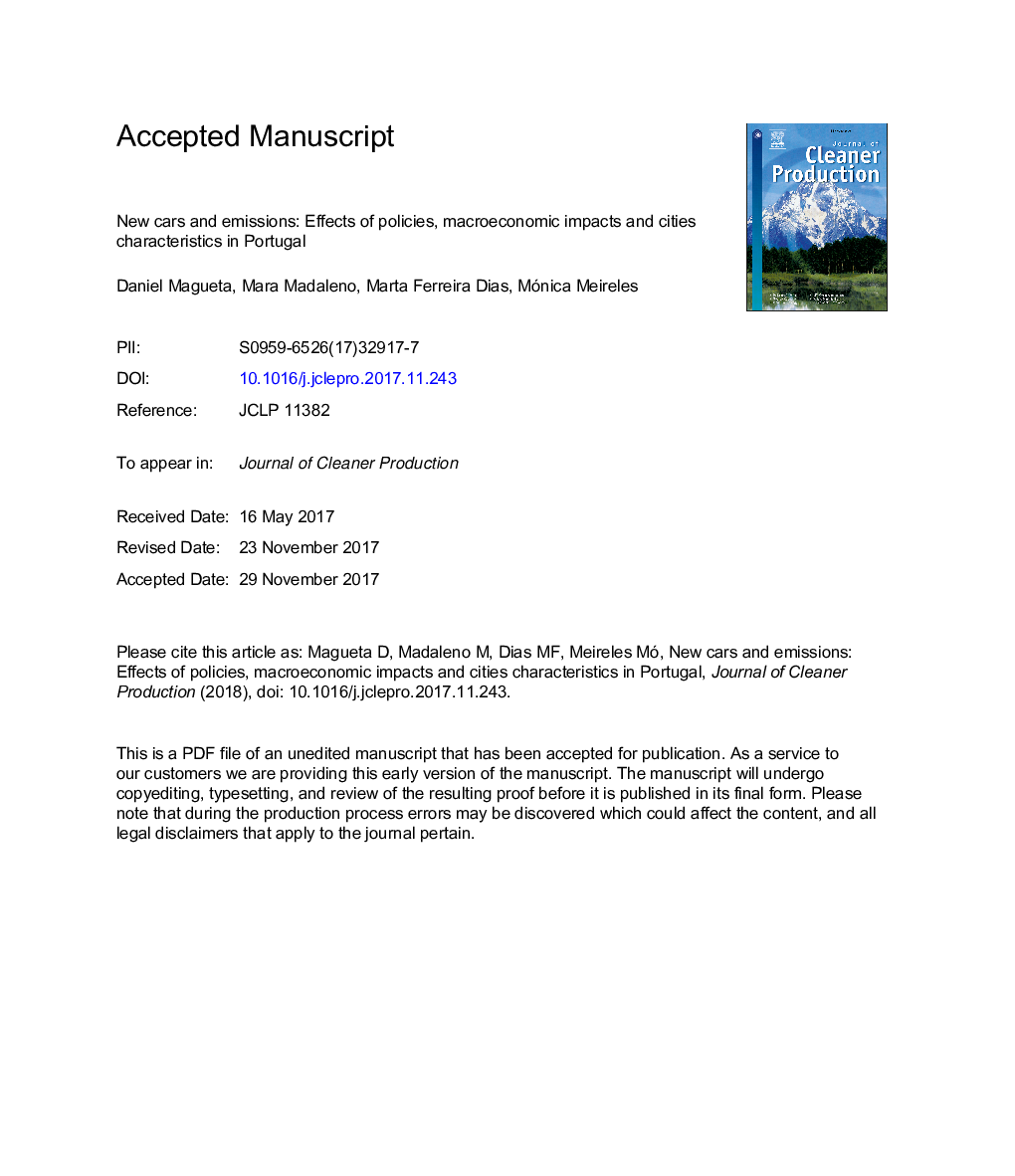| Article ID | Journal | Published Year | Pages | File Type |
|---|---|---|---|---|
| 8097598 | Journal of Cleaner Production | 2018 | 30 Pages |
Abstract
The Paris Agreement on climate change is the first international climate agreement that extends mitigation obligations to all countries. Accordingly, the EU has already put in place some policy measures to decrease CO2 and GHG emissions from cars, e.g. the obligation of each Member State to provide information on the fuel-efficiency of new passenger cars, namely on fuel consumption and CO2 emissions. In Portugal, in 2013, the transport sector was responsible for 33.3% of energy consumption with the road transport accounting for 95% of this percentage. Furthermore, the transport sector was also responsible for 34.7% of CO2 emissions, a value highly concentrated in the major cities. To improve significant reductions on emissions in the transport sector, the Government has introduced several energy efficiency measures. Although there are many countries that have introduced special programs aimed at increasing vehicle replacement through new low-carbon vehicles purchases, little attention has been paid to their impact on sales and prices. Using a completely unexplored database of sales regarding new cars sold in Portugal during the period of 2002 and 2016 we have explored the evolution of average CO2 emissions and sales considering different types of new cars sold (gasoline, diesel and electrical) in terms of descriptive statistics. We have also applied multiple regression models using macroeconomic variables able to justify changes in terms of both sales and emissions. Results demonstrate that including macroeconomic effects, household characteristics and city specificities are important for both emissions and sales explanatory behaviour that allow inferring how policy makers should redirect attention when formulating new policies regarding environmental performance.
Keywords
Related Topics
Physical Sciences and Engineering
Energy
Renewable Energy, Sustainability and the Environment
Authors
Daniel Magueta, Mara Madaleno, Marta Ferreira Dias, Mónica Meireles,
